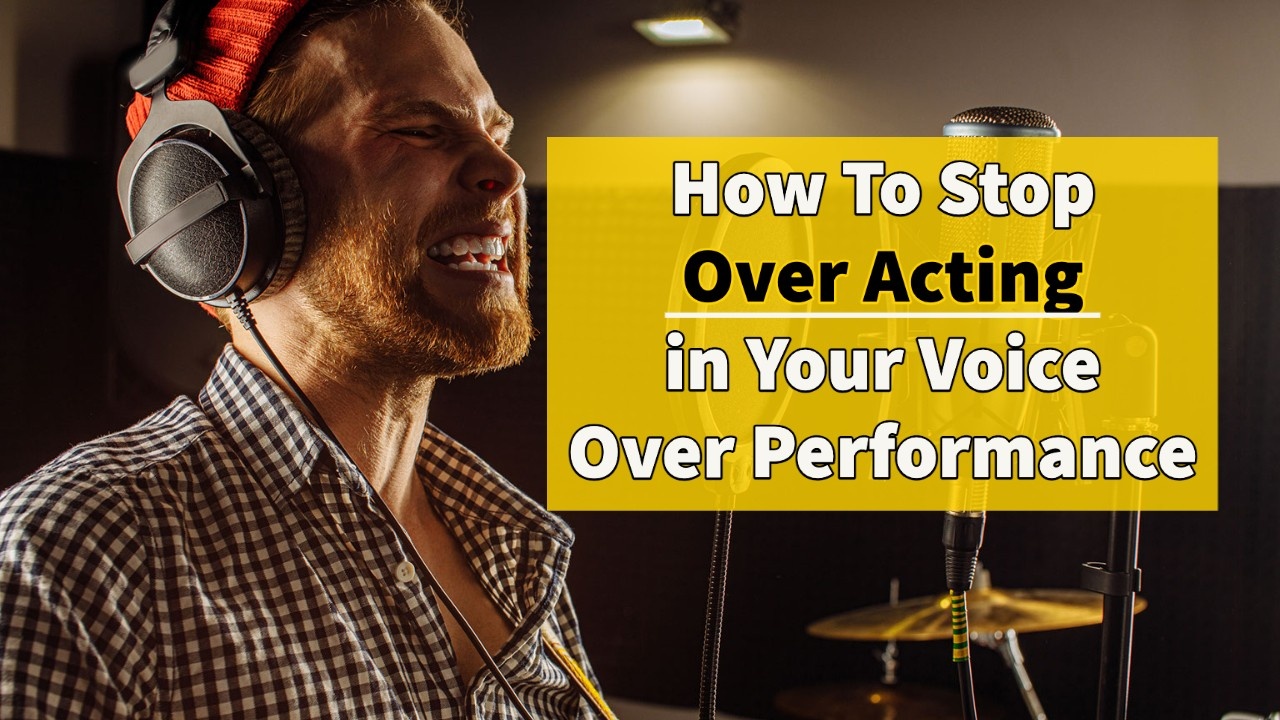How To Stop Over Acting in Your Voice Over Performance
Aug 16, 2022
Do you ever feel like you are over acting in your voice over and/or acting performances? It can be easy to get carried away and go too far with your character's emotions, but luckily there are a few tricks you can use to keep yourself in check.
In this post, we'll take a look at some of the best ways to avoid overacting in your voice overs, so you can deliver a performance that is both believable and engaging.
4 Steps to Stop Over Acting
1. Understand the difference between overacting and giving a powerful performance
Over acting is often thought of as a bad thing, but there's a big difference between overacting and giving a powerful performance. Over acting is when an actor goes too far, making their performance seem fake or melodramatic. On the other hand, giving a powerful performance means being able to capture the emotions of the character and convey them to the audience in a way that feels real and authentic.
Often, the best performances are those that strike a balance between the two. The key is to find the right level of intensity for your character and then commit to it fully. When done well, overacting can actually add to the power of a performance. It can help to convey the feelings of a character who is struggling to control their emotions, or it can add an element of humor or absurdity to a scene.
However, it's important to remember that there is a fine line between overacting and simply giving a bad performance. It's all about knowing your character and finding the right balance for your performance.
2. Don't try to be someone you're not - be yourself
When it comes to acting or doing voice over work, it's important to remember that you should always be yourself. Trying to imitate someone else will only make you sound fake, and chances are the audience will be able to tell that you're not being genuine and are overacting.
Instead of trying to sound like someone else, focus on sounding like you are telling a friend about what is happening. This doesn't mean that you should try to put on a persona - just be confident and natural, and let your unique personality shine through. The more comfortable you are with who you are, the better your performance will be.
3. Practice breathing and relaxation techniques before your next performance
As an actor or voice over artist, it's important to have some tools in your toolbox to help you manage performance anxiety. One of the most effective tools is deep breathing.
When we're anxious, our breathing becomes shallow and rapid, which can lead to dizziness, lightheadedness, and a tightening of the chest. Practicing deep breathing helps to slow down the heart rate and combat the physical symptoms of anxiety.
In addition, it's important to focus on relaxation techniques before a performance. This can involve anything from listening to calm music to doing some light stretches. By taking some time to relax before you perform a voiceover or go on stage, you'll be better able to manage any nerves and give a confident performance.
4. Get feedback from other voice-over artists and use their suggestions to improve your own work
As a voice over artist, one of the best ways to improve your work is to get feedback from coaches other voice over artists. When you're in the recording booth, it can be difficult to judge your own performance accurately.
That's why it's so important to get feedback from a positive and invested community.
They can help you identify areas where you need to make adjustments, such as over acting or poor diction. In addition, voice over coaching can also be extremely helpful in improving your work. A coach can offer specific suggestions on how to improve your delivery and make sure that your voice is being used effectively.
If you want to be a successful voice-over artist, it’s important to learn how to give powerful performances. The tips we have shared in this post will help you get started.
Be yourself, avoid faking emotion or trying too hard to sound excited, and practice breathing and relaxation techniques before your next performance.
Get feedback from a voice over coach and a community of vo peers and use their suggestions to improve your own work.
Make sure to check out A VO's Journey Elite Academy for coaching and a community that care about your success in voice over.
More Information about Over Acting:






